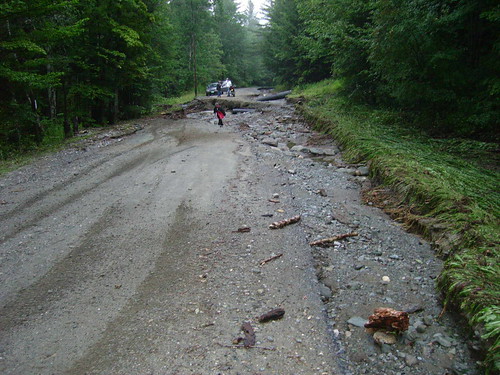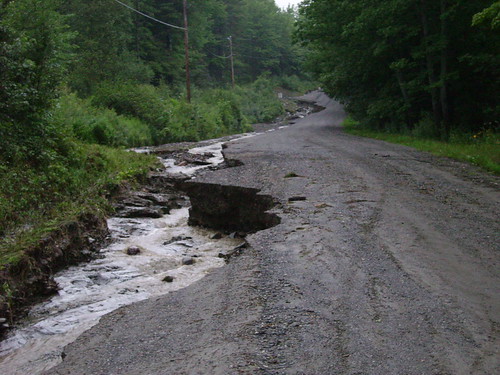Fringe: Where Science Meets JJ Abrams
/
Fox's much-hyped show Fringe hit the airwaves last night, a multi-million dollar pilot episode that combines some of the more interesting elements of CSI, Alias and the X-Files. The show is to be about an FBI team (and consultants) who investigate odd happenings around the world, fringe science.
The pilot is certainly one to catch attention - on a flight to Logan International, a man is panicky, injects himself with something and within moments, the passengers have been killed, their connective tissue and muscles turning to gel and oozing off, leaving skin and skeletons. Thus, the some of the key characters are brought in to investigate - Agent Olivia Dunham, who tracks down a warehouse with her partner and lover, John Scott. They come across the man responsible, but Scott is infected in the process. Dunham pulls in Peter Bishop to get his father, Walter Bishop, to help, as he seems to have been an expert in the field of fringe science. There's some shooting, some weird techno babble talk and a car chase later, and we find the truth - someone is a double agent, and that there are things in this world that you're better off not knowing, but while the band's together, we might as well investigate.
This was a good pilot - not perfect by any stretch of the imagination, but interesting, intriguing, entertaining and fun. I'm a bit of a JJ Abrams fanboy with his work in the creation of Alias, Lost, Cloverfield and even Mission Impossible III. As a creator, he has a knack for putting things together from really well known elements. Alias is a spy show, Mission Impossible is more spies in an established franchise, Cloverfield is a fantastic take on the Godzilla/monster-trashes-city genre and LOST... LOST is a bad example there, but you know what I mean. One of the things that I like about Abrams is the way that his shows and films are quirky, with odd dialogue, characters that are somewhat offbeat. In LOST, one of my favorite moments is right in the beginning, when we first see Jack - he's a man in a suit in the middle of a jungle. It has a certain offbeat flavor that is very appealing. Fringe does this pretty well - throughout the pilot, we are teased with little elements and mentions of things that are sure to really make up much of the mythology later on. There's conspiracy theories, especially around a major corporation, the improbably named Massive Dynamics, which shares connections to the elder Bishop, one of the guys behind the attack on the airplane, and some of the main characters. Scott turns out to have been threatening the terrorist already, and seems to have been in league with the company, if the order to question him five hours after his death turns out to mean anything.
Fringe science fits perfectly with this type of show, and has been touched upon a little in various other Abrams shows - Alias had its share of paranormal elements with Rambaldi and random doomsday scientists trying to do something. LOST is all crazy science stuff at most points, Cloverfield has its monster, and MI3 has the Rabbit's Foot, an unknown pathogen or something. With things like mind-control, sheep circles, earthquakes, people waking up from a coma and writing nothing but numbers and children vanishing then reappearing later on, un-aged, fit right in with Abrams and his style, and the way that the pilot works, and presumably, the rest of the show, it should be a fascinating and interesting ride.
Most of all, I'm interested to see what will happen with Massive Dynamics - one of their employees is a cyborg (robotic arm), and they seem to have a lot of knowledge of the Fringe science area, as questioning someone who has been dead for 5 hours seems to be a pretty easy thing to do. The name drop of the Pattern is very typical of Abrams, and I suspect that they'll have something to do with it.
There are some flaws here. A couple of the characters are pretty flat, most notably Peter Bishop, who has 'daddy problems' and is a little too typical of some of the aforementioned projects. He's brilliant, attractive and annoying, but comes around in the end and agrees to help Agent Dunham. Dunham herself is almost a background character, but far from a bad one - she's just overshadowed by some of the others in the show. Duhnam's boss, Phillip Broyles comes on very strong and flat, but evens out a little towards the end. The best character is easily Walter Bishop, the mad scientist, with a bunch of fun quotes and a crazy drive.
One of my main complaints with the show is that some of this stuff isn't new or breaking the mold with the other shows. Alias and LOST both have characters that are similar with ones here in this show. They're brilliant, attractive, have problems with their parents, etc. A little variation here would be nice, and I'll be annoyed if we're back to square one with Walter and his son every episode. Similarly, the show begins with problems on an airplane. Where have we seen that before?
This show isn’t any of the other ones already mentioned – there’s certainly enough between them that they aren’t copies, and although there are influences, Fringe stands well on its own two feet with the setup of this pilot. We have the beginnings of a large, overarching mythology that involves weird things and corporations, and a set of characters that shows some real promise. This also isn’t X-Files, despite the numerous comparisons, and I think that a huge amount of credit goes to the writers for making this show its own thing, not an X-Files copy.
All in all, it's a solid start to what is one of the more promising shows of this season. I can't wait to see the next episode. One word of warning, - don’t eat before watching. Next week’s episode is apparently about a woman who gets pregnant and gives birth in a matter of hours, and the child ages very quickly – 80 years in minutes. Sounds very, very interesting. If anything, it looks like it's going to be far better than CBS's own Science show, the Eleventh Hour, based off of a UK drama by the same name.

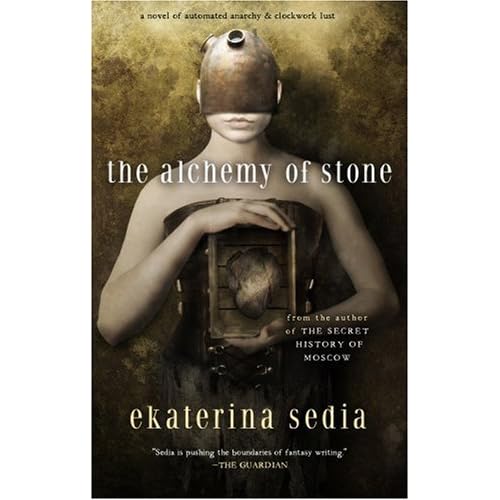
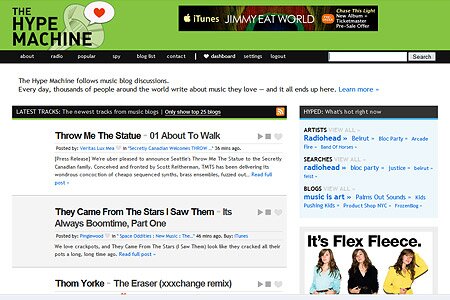
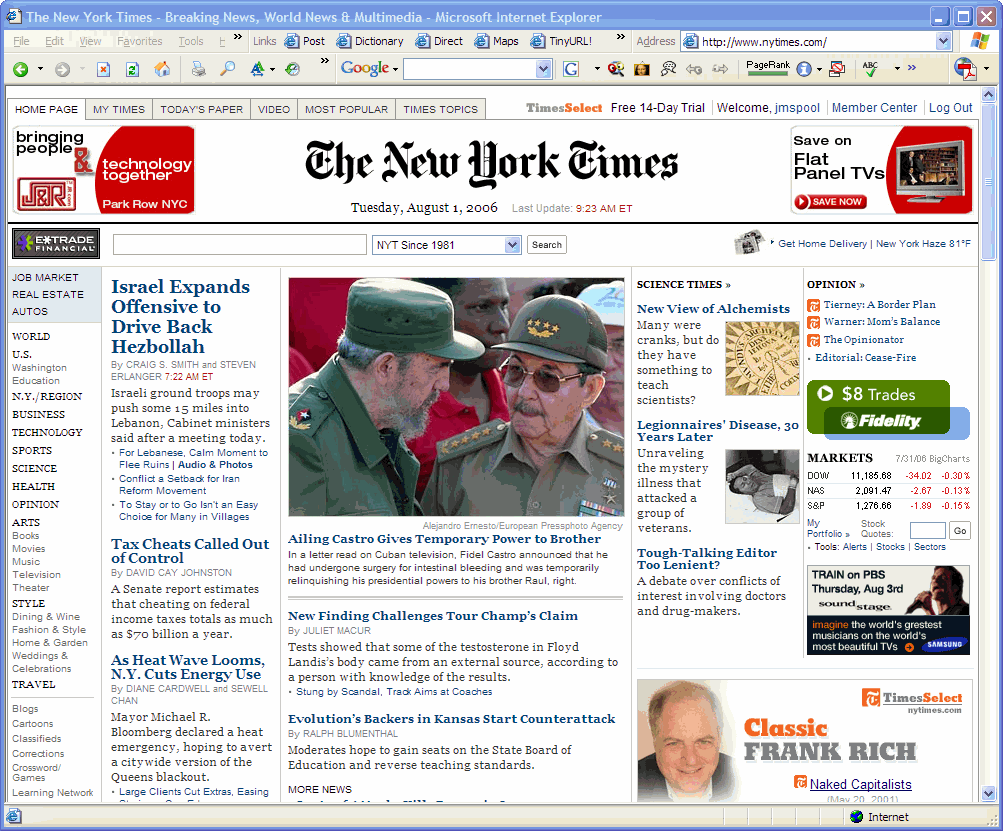


 Actually, I prefer independent bookstores over all others. BUT, when it comes to the internet, Amazon.com is a powerhouse of buying things. Customer reviews, cover images, a very, very good used section and just about everything that you'd ever want is literally at your fingertips when it comes to books, movies and music (that's my use of it anyway). I got a text book for a penny once. And, they're fast.
Actually, I prefer independent bookstores over all others. BUT, when it comes to the internet, Amazon.com is a powerhouse of buying things. Customer reviews, cover images, a very, very good used section and just about everything that you'd ever want is literally at your fingertips when it comes to books, movies and music (that's my use of it anyway). I got a text book for a penny once. And, they're fast.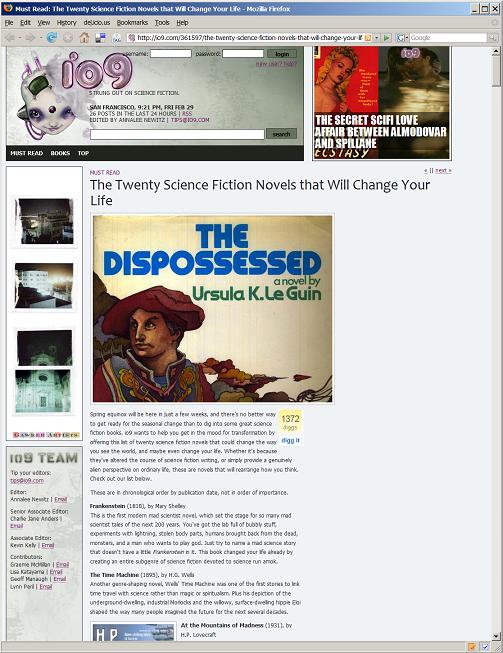








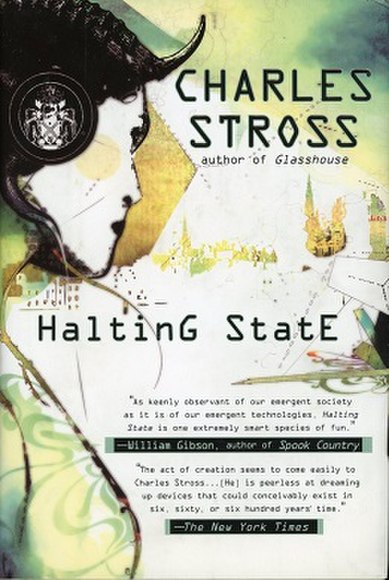


 For my master's, the subject matter has changed from historigraphy to more historical study, which is great. The title for this 11 week course has been The Western Way of War, which examines the nature to which the west (Europe) conducts conflicts. Non-west generally refers to everything not in Europe - with the exception of areas that have been completely colonized by European powers - Asia, the Middle East, Africa, etc. It's a facinating subject.
For my master's, the subject matter has changed from historigraphy to more historical study, which is great. The title for this 11 week course has been The Western Way of War, which examines the nature to which the west (Europe) conducts conflicts. Non-west generally refers to everything not in Europe - with the exception of areas that have been completely colonized by European powers - Asia, the Middle East, Africa, etc. It's a facinating subject.